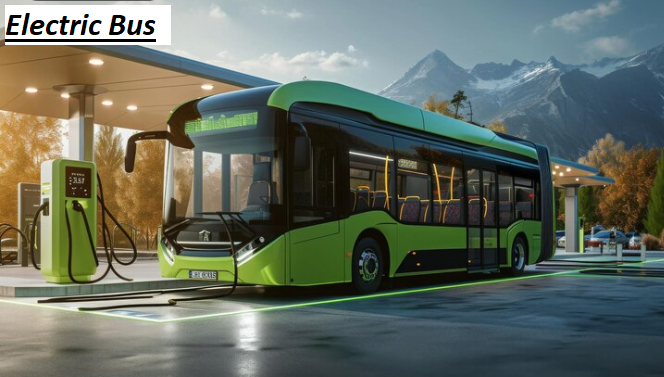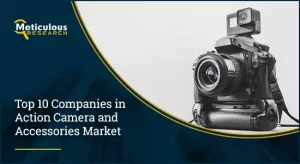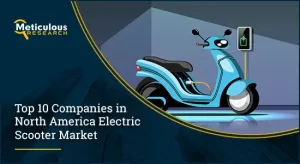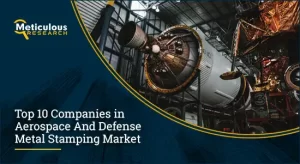
The Electric Bus Market is projected to reach $100.39 billion by 2031, growing at a CAGR of 23.4% from 2024 to 2031.
Government policies play a crucial role in driving the adoption of Electric Vehicles (EVs), particularly in the electric bus segment. As countries worldwide strive to combat climate change, reduce carbon emissions, and transition towards more sustainable modes of transportation, policy frameworks have emerged as key instruments for encouraging the uptake of EVs. Electric buses, in particular, have gained significant traction in major cities across the globe, supported by national and local government initiatives aimed at curbing air pollution and promoting green public transportation systems. These policies range from offering financial incentives to enacting stringent emission standards and deploying infrastructure for charging electric vehicles.
Role of Government Policies in Supporting Electric Buses
One of the most significant factors driving the growth of electric buses is the growing focus on policies designed to support the Heavy-duty Vehicle (HDV) segment. This segment includes medium and heavy freight trucks, as well as buses. Government policies targeting this sector are increasingly focused on encouraging the deployment of electric buses and other zero-emission vehicles (ZEVs). Nearly 70% of global HDV sales are now governed by EV policies, which offer financial support, set targets for ZEV adoption, and implement standards aimed at reducing pollutant emissions.
Many countries are dedicating substantial funding and implementing policies specifically aimed at accelerating the deployment of electric buses. This growing policy focus is underpinned by the urgent need to reduce the greenhouse gas emissions associated with transportation. To meet these goals, governments have introduced a range of policy measures, including:
Download Sample Report Here: https://www.meticulousresearch.com/download-sample-report/cp_id=5807
1. **Competitive Tenders and Green Public Procurement Programs**: Governments are using competitive tenders to procure electric buses and supporting green public procurement programs that prioritize the acquisition of zero-emission vehicles for public transport fleets. These programs encourage manufacturers to bid on contracts for supplying electric buses, often requiring adherence to environmental standards and ensuring that public funds are used to support sustainable transportation solutions.
2. **Purchase Subsidies and Financial Incentives**: Governments offer direct financial support to encourage the adoption of electric buses by reducing their upfront acquisition costs. These purchase subsidies help bus operators and transport authorities to make the transition to electric fleets more cost-effective. By lowering the financial barrier to entry, these subsidies make electric buses more affordable and accessible, further stimulating demand.
3. **Deployment of Charging Infrastructure**: The availability of reliable charging infrastructure is critical for the widespread adoption of electric buses. Governments are investing in the development of charging stations across urban areas, highways, and key transport routes to ensure that electric buses can operate efficiently. By providing financial support and incentives for the deployment of charging infrastructure, governments are creating an environment conducive to the expansion of electric bus fleets.
4. **Emission Standards**: Governments are implementing strict pollutant emission standards that push public and private transport operators to adopt cleaner technologies. These standards are designed to limit the emissions of greenhouse gases and other pollutants, effectively encouraging the transition from diesel-powered vehicles to electric alternatives. As a result, many public transport agencies are turning to electric buses to meet these new regulatory requirements.
Global Policy Initiatives for Electric Buses
Several countries are setting ambitious targets for the adoption of zero-emission vehicles, including electric buses. In 2022, 11 countries signed the global Memorandum of Understanding (MoU) on zero-emission medium and heavy-duty vehicles, bringing the total number of signatories to 27. These countries aim to achieve 100% zero-emission new truck and bus sales by 2040. This commitment signals a clear shift towards a future where public transportation is dominated by electric vehicles, including electric buses.
Additionally, specific countries are already offering incentives for purchasing commercial electric vehicles. For instance, California’s **Hybrid and Zero-Emission Truck and Bus Voucher Incentive Project (HVIP)** is playing a pivotal role in transforming the market by offering financial incentives to accelerate the adoption of zero-emission heavy-duty vehicles, including electric buses. The HVIP provides vouchers to purchasers and lessees of eligible electric buses, helping to offset the higher upfront costs associated with these vehicles. By supporting the acquisition of electric buses, California is leading the way in promoting cleaner transportation alternatives.
Check complete table of contents with list of tables and figures: https://www.meticulousresearch.com/product/electric-bus-market-5807
Regional Case Studies in Electric Bus Adoption
Countries worldwide are implementing their own versions of policies to promote the electrification of public transport. For instance, in February 2024, Thailand’s government announced significant tax incentives to encourage the introduction of electric trucks and buses into commercial fleets. The tax incentives are expected to help fleet operators transition to cleaner vehicles, improving air quality in major cities while reducing overall greenhouse gas emissions.
In India, the state of Maharashtra is leading the charge toward electrification. In 2021, the **Maharashtra Electric Vehicle Policy** was introduced to promote the adoption of Battery Electric Vehicles (BEVs), including electric buses, across six major urban agglomerations: Mumbai, Pune, Nagpur, Nashik, Aurangabad, and Amravati. The policy aims to achieve 25% electrification of public transportation by 2025, making it a key driver for the deployment of electric buses in India. By offering purchase subsidies and creating incentives for public and private transport operators, the Maharashtra government is facilitating a smoother transition to electric buses.
Challenges and Opportunities
While government policies are playing a vital role in promoting electric buses, the industry still faces several challenges. One of the primary challenges is the high upfront cost of electric buses compared to conventional diesel-powered buses. However, the long-term benefits of electric buses, such as lower operating costs and reduced emissions, outweigh the initial financial barriers. Government subsidies, tax incentives, and financial support for fleet operators are crucial to bridging this gap and making electric buses more attractive to buyers.
Another challenge is the development of charging infrastructure. Electric buses require a reliable network of charging stations to operate efficiently. Governments need to collaborate with private sector stakeholders to ensure the rapid deployment of charging infrastructure. This collaboration can help overcome the challenge of range anxiety, a concern that electric buses may not have sufficient range to complete their routes without access to charging facilities.
Despite these challenges, the global shift towards greener and more sustainable transportation presents significant opportunities for the electric bus market. The increasing focus on reducing emissions, improving air quality, and mitigating climate change is expected to drive further government investment in electric bus adoption. As more countries commit to zero-emission vehicle targets and implement policies to support the electrification of public transport, the electric bus market is poised for substantial growth.
Quick Buy: https://www.meticulousresearch.com/Checkout/69186389
Conclusion
Government policies play an indispensable role in the growing adoption of electric buses as part of the broader transition to sustainable transportation. Through various initiatives, including financial incentives, green procurement programs, and the development of charging infrastructure, governments are actively encouraging the electrification of public transport systems. This growing focus on electrifying heavy-duty vehicles, including buses, is expected to drive significant demand in the electric bus market.
As governments continue to invest in policy measures that support the deployment of electric buses, the market for these zero-emission vehicles is set to expand. The increasing adoption of electric buses will not only help reduce greenhouse gas emissions but also improve air quality in urban areas, contributing to a healthier and more sustainable future for transportation.
Electric Bus Market Report Summary:
| Particulars | Details |
| Number of Pages | 219 |
| Format | |
| Forecast Period | 2024–2031 |
| Base Year | 2023 |
| CAGR (Value) | 23.4% |
| CAGR (Volume) | 22.4% |
| Market Size (Value) | USD 100.39 Billion by 2031 |
| Market Size (Volume) | 3,41,601 Units by 2031 |
| Segments Covered | By Propulsion Type
By Bus Length
By Power Output
By Battery Type
By Sector
|
| Countries Covered | Europe (U.K., Germany, France, Italy, Spain, Netherlands, Sweden, Norway, Rest of Europe), Asia-Pacific (China, India, South Korea, Japan, Singapore, Thailand, Rest of Asia-Pacific), North America (U.S., Canada), Latin America, and the Middle East & Africa |
| Key Companies | BYD Company Limited (China), Yutong Bus Co., Ltd. (China), Volvo Group (Sweden), NFI Group Inc. (Canada), Solaris Bus & Coach sp. z o.o. (Poland), Daimler Truck Group (Germany), Tata Motors Limited (India), Hyundai Motor Company (South Korea), Ebusco B.V. (Netherlands), Olectra Greentech Limited (India), Xiamen King Long United Automotive Industry Co., Ltd (China), Anhui Ankai Automobile Co., Ltd. (China), Zhongtong Bus Holding Co., Ltd. (China), MAN Truck & Bus SE (Germany), and Switch Mobility Limited (U.K.). |
About Meticulous Research®
Meticulous Research® is a leading provider of comprehensive market intelligence, offering actionable insights and analysis across various industries. Our reports empower businesses to make informed decisions, drive growth, and remain competitive in a rapidly evolving marketplace.
Contact Us:
Meticulous Market Research Pvt. Ltd.
1267 Willis St, Ste 200 Redding,
California, 96001, U.S.
USA: +1-646-781-8004
Europe : +44-203-868-8738
APAC: +91 744-7780008
Email- sales@meticulousresearch.com
Visit Our Website: https://www.meticulousresearch.com/
Connect with us on LinkedIn- https://www.linkedin.com/company/meticulous-research






